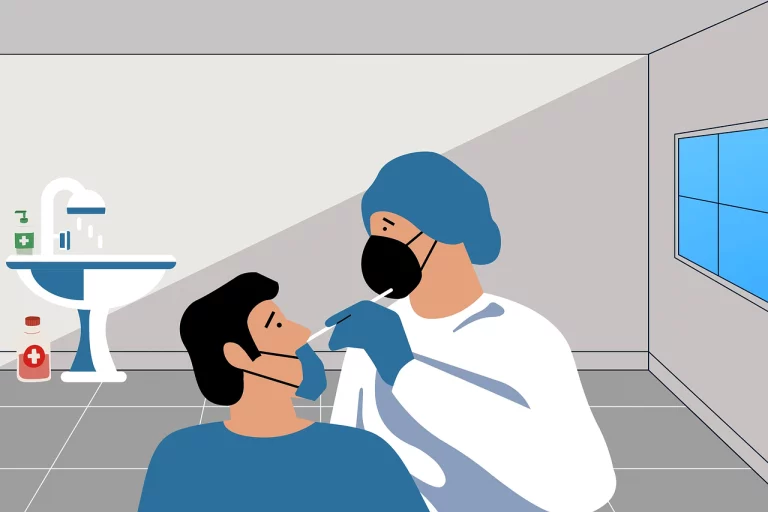Book Appointment Now

Understanding Informed Consent
In healthcare, understanding informed consent is crucial for nurses, as it directly impacts patient autonomy, legal protections, and ethical responsibilities. Informed consent ensures that patients make informed decisions about their treatment, based on full disclosure of risks, benefits, and alternatives. As patient advocates, nurses play a vital role in the informed consent process, ensuring that patients are adequately informed and empowered to make decisions about their care. This article explores the fundamentals of informed consent and what every nurse should know to uphold this essential aspect of patient care.
Get a custom nursing essay about informed consent assignment
Order Custom Nursing Essay
What is Informed Consent?
Informed consent is a legal and ethical process that involves obtaining a patient’s voluntary agreement to undergo a specific medical treatment or procedure. It requires that healthcare providers explain the nature of the treatment, potential risks and benefits, possible alternatives, and the consequences of refusing care, allowing the patient to make an educated decision about their health.
Key Elements of Informed Consent:
- Disclosure: Providing the patient with comprehensive information about the proposed treatment, including risks, benefits, and alternatives.
- Comprehension: Ensuring that the patient fully understands the information provided.
- Voluntariness: The patient’s decision to proceed must be made without coercion or undue influence.
- Capacity: The patient must have the mental ability to understand the information and make an informed decision.
- Agreement: The patient provides explicit consent, either verbally or in writing, to proceed with the treatment or procedure.
Also check NURS 521 the elements of informed consent
The Nurse’s Role in the Informed Consent Process
Nurses play an integral role in supporting the informed consent process, acting as patient advocates and communicators. While obtaining formal consent is often the responsibility of the physician, nurses are essential in educating patients, clarifying information, and ensuring that consent is truly informed.
1. Facilitating Patient Understanding
One of the most critical aspects of understanding informed consent is ensuring that patients fully comprehend the information presented to them. Nurses must assess the patient’s understanding and clarify any confusion regarding the treatment or procedure.
Key Responsibilities:
- Explain in plain language: Break down medical jargon into simple, clear terms that the patient can understand.
- Answer questions: Be available to address any questions or concerns the patient may have, ensuring they feel comfortable with the information provided.
- Use teach-back methods: Ask the patient to explain the procedure in their own words to verify their understanding.
By ensuring comprehension, nurses help protect patients’ rights to make informed decisions about their health.
2. Ensuring Voluntary and Uncoerced Consent
It is essential that consent is given voluntarily, without pressure from healthcare providers or family members. Nurses must observe the patient’s decision-making process and intervene if they sense that the patient is being coerced or influenced unduly.
Key Responsibilities:
- Support patient autonomy: Respect the patient’s right to make decisions based on their values, even if their choice differs from the recommended treatment.
- Identify signs of coercion: Watch for cues that suggest the patient is feeling pressured to make a decision and advocate for their right to choose freely.
- Provide emotional support: Offer reassurance and emotional support, especially in high-stress situations where patients may feel overwhelmed.
3. Assessing the Patient’s Capacity to Consent
For consent to be valid, the patient must have the mental capacity to understand the nature of the treatment and the associated risks and benefits. Nurses are often in the best position to assess a patient’s capacity due to their close interactions with patients.
Key Responsibilities:
- Evaluate cognitive function: Assess the patient’s mental state to determine whether they are capable of understanding and making an informed decision.
- Involve family or legal representatives: If the patient lacks capacity, consult family members or legal representatives to make decisions on their behalf, following the appropriate legal guidelines.
Nurses ensure that patients who may not have the capacity to provide informed consent receive appropriate support through substitute decision-makers.
4. Documenting the Informed Consent Process
Proper documentation is crucial in the informed consent process. Nurses must accurately record the consent discussion, noting that the patient received all necessary information, understood it, and voluntarily agreed to the proposed treatment.
Key Responsibilities:
- Document patient understanding: Record the details of the discussion, including any questions asked by the patient and your assessment of their comprehension.
- Obtain signatures: Ensure that the patient (or their representative) signs the consent form after receiving all relevant information.
- Note refusal of consent: If a patient declines treatment, document their decision and the reasons they provided for refusing care.
Comprehensive documentation protects both the patient’s rights and the healthcare provider by establishing that informed consent was appropriately obtained.
5. Addressing Cultural and Language Barriers
In diverse healthcare settings, cultural and language differences can complicate the informed consent process. Nurses must be sensitive to these differences and take steps to ensure that patients from all backgrounds can fully understand their treatment options.
Key Responsibilities:
- Provide language support: Use medical interpreters for patients who speak a different language to ensure they receive accurate information.
- Respect cultural values: Understand that some cultures have specific beliefs about healthcare, treatment, and decision-making, and adjust your approach to accommodate these values.
- Ensure informed consent is culturally appropriate: Be aware of how cultural factors may affect the patient’s understanding of and approach to informed consent.
By addressing these barriers, nurses can ensure that all patients have equal access to the information they need to make informed decisions.
Legal and Ethical Considerations in Informed Consent
Informed consent is both a legal requirement and an ethical obligation. Failing to obtain proper consent can lead to legal consequences, including claims of negligence or malpractice, as well as ethical violations of patient autonomy. Nurses must be aware of the legal guidelines surrounding informed consent in their region and ensure that the patient’s rights are always upheld.
Ethical Principles of Informed Consent:
- Autonomy: Respecting the patient’s right to make decisions about their care.
- Beneficence: Ensuring that the treatment plan benefits the patient.
- Nonmaleficence: Avoiding harm by ensuring that the patient is fully informed of potential risks.
- Justice: Providing equal care and ensuring that all patients, regardless of background, have access to the information needed to make informed decisions.
Nurses play a vital role in upholding these ethical and legal principles through their involvement in the informed consent process.
Understanding informed consent is essential for nurses, as it protects patient autonomy and ensures ethical, patient-centered care. Nurses play a critical role in facilitating patient comprehension, ensuring voluntariness, assessing capacity, and documenting the process accurately. By respecting the legal and ethical aspects of informed consent, nurses safeguard the rights of their patients while promoting trust and collaboration in the healthcare setting. This approach ensures that patients can make informed, confident decisions about their own care.
Also read:
- Informed Versus Negotiated Consent
- Discussion: Informed Consent Letter
- Informed Consent and Debriefing Form
- Informed Consent in Healthcare Discussion and Responses




